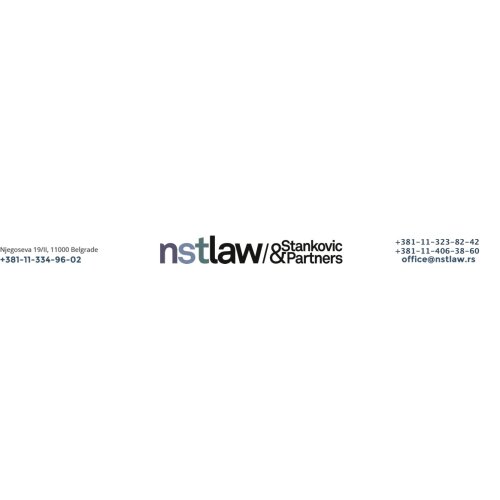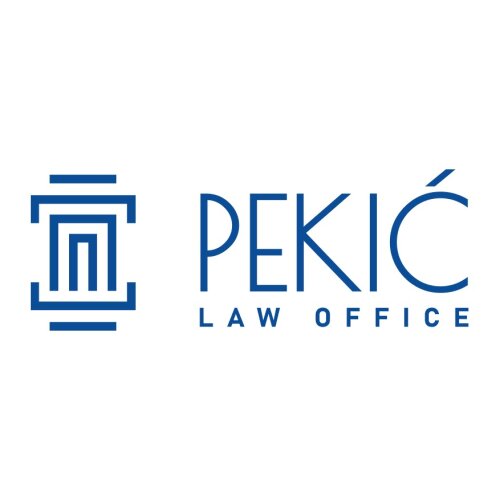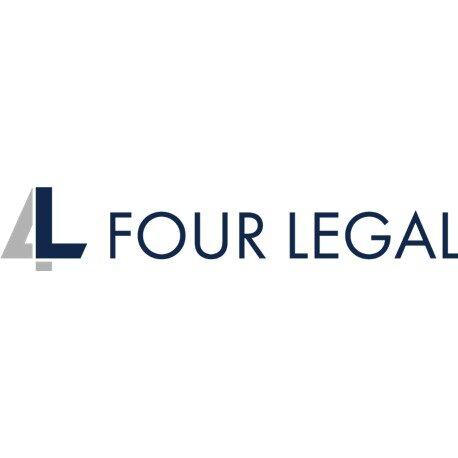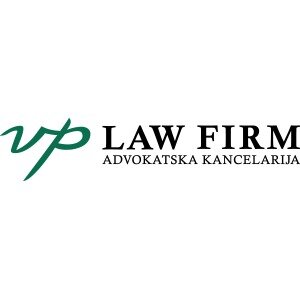Best Energy, Environment & ESG Lawyers in Serbia
Share your needs with us, get contacted by law firms.
Free. Takes 2 min.
Or refine your search by selecting a city:
List of the best lawyers in Serbia
Legal guides written by Business Law office - Advokatska Kancelarija:
- Why Invest In Serbia
About Energy, Environment & ESG Law in Serbia
Energy, Environment & ESG (Environmental, Social, and Governance) law is an area of legal practice that has grown rapidly in Serbia in recent years. This field covers the legal frameworks that dictate how energy is produced, distributed, and consumed, how environmental impacts are managed, and how organizations are held accountable for their social and governance practices. Serbia is currently undergoing significant changes to align its laws with the European Union standards, especially as it negotiates accession to the EU. As a result, compliance, sustainability, and ethical practices are becoming increasingly important for companies and individuals involved in energy production, industrial activities, land development, or business operations with environmental impacts.
Why You May Need a Lawyer
Many situations can prompt the need for professional legal assistance in the field of Energy, Environment & ESG in Serbia. You may need a lawyer if you are:
- Starting an energy project, such as renewable energy installations, and need to navigate licensing and regulatory requirements.
- Involved in property development or industrial activity that may be impacted by environmental regulations.
- Facing an environmental inspection, enforcement action, or penalty from the authorities.
- Seeking to ensure your company's operations comply with evolving ESG standards and reporting obligations.
- Acquiring or investing in a company and require environmental due diligence to assess potential liabilities.
- Contesting a decision or fine from an environmental or energy authority.
- Responding to public concerns, activist claims, or civil lawsuits regarding environmental impacts.
- Looking to implement sustainability and governance measures that meet international and Serbian standards.
A lawyer can help by providing legal advice, representing you before authorities or courts, preparing documentation, and supporting you through complex compliance issues or disputes.
Local Laws Overview
Energy, Environment & ESG in Serbia are governed by a complex mix of national laws, bylaws, and international treaties. Major legal acts include the Energy Law, the Law on Environmental Protection, the Law on Environmental Impact Assessment, the Law on Integrated Pollution Prevention and Control, and multiple decrees concerning greenhouse gases, water management, waste, and biodiversity.
Key points to understand include:
- Energy Law: Regulates energy production, distribution, and supply. Emphasizes renewable energy, energy efficiency, and security of supply.
- Environmental Law: Contains strict requirements for permits, monitoring, and reporting for activities that may impact air, water, or soil quality. Stipulates obligations for remediation and environmental liability.
- Environmental Impact Assessment (EIA): Projects likely to affect the environment must undergo an EIA procedure before obtaining permits.
- ESG Requirements: Increasing focus on corporate ESG reporting, anti-corruption, and transparency, especially for companies operating internationally or with foreign capital.
- Penalties: Authorities can impose significant fines or require the suspension of operations for non-compliance, including criminal liability in severe cases.
- EU Alignment: Serbia is gradually adopting EU directives and practices as part of its accession negotiations, so frequent legal updates are expected.
Frequently Asked Questions
What is ESG and why is it important in Serbia?
ESG stands for Environmental, Social, and Governance. It refers to the standards and criteria companies use to manage environmental risks, social responsibilities, and governance structures. In Serbia, ESG is becoming increasingly relevant, especially for companies seeking investment, operating internationally, or facing regulatory requirements.
Do I need a permit to start a renewable energy project?
Yes, renewable energy projects such as solar or wind farms require multiple permits, including energy licenses, construction permits, and environmental impact assessments. Early legal advice is crucial to ensure all procedures are followed.
What types of activities require an Environmental Impact Assessment (EIA)?
Activities that may significantly affect the environment, such as industrial plants, energy projects, waste management, or infrastructure projects, typically require an EIA. The list of activities is defined by Serbian law.
What are the penalties for violating environmental regulations?
Penalties can range from fines and orders to cease activities, to criminal prosecution in serious cases. The severity depends on the type and extent of the violation.
Are Serbian laws aligned with the European Union regulations?
Serbia is in the process of harmonizing its laws with EU directives, especially in energy and environmental protection. Alignment is ongoing, so legislation may change as Serbia approaches EU accession.
Who conducts environmental inspections in Serbia?
Environmental inspections are carried out by the Ministry of Environmental Protection and other relevant authorities, depending on the sector and location of the facility or project.
Can environmental permits be transferred if a company is sold?
In most cases, environmental permits are specific to the company and site and do not automatically transfer. Legal steps are needed to secure new permits or transfer obligations during company sales or mergers.
How can companies manage ESG risks?
Companies should perform regular compliance checks, integrate ESG criteria into decision-making, follow best practices, and maintain transparent reporting in line with national and international standards.
What are the reporting obligations for environmental matters?
Companies engaged in activities affecting the environment must regularly report emissions, waste, and other data to Serbian authorities. There are also disclosure obligations for ESG factors, especially for larger entities.
What should I do if I receive an enforcement notice or penalty from an environmental authority?
Contact a lawyer immediately. Timely legal advice can help in preparing a response, appealing the decision, negotiating with authorities, or correcting any irregularities.
Additional Resources
If you need more information or wish to contact relevant Serbian institutions, consider reaching out to:
- Ministry of Environmental Protection of the Republic of Serbia
- Energy Agency of the Republic of Serbia (AERS)
- Environmental Protection Agency (SEPA)
- Chamber of Commerce and Industry of Serbia - ESG Regulatory Center
- Serbian Association of Energy and Environmental Law
- Local branches of international organizations, such as the World Bank or European Bank for Reconstruction and Development (EBRD)
Many of these institutions provide guides, contacts, and sometimes free consultations for individuals and companies.
Next Steps
If you find yourself needing legal assistance in Energy, Environment & ESG matters in Serbia, consider the following steps:
- Identify the specific issue or question you need help with.
- Gather all relevant documents, such as permits, contracts, or correspondence with authorities.
- Contact a qualified Serbian lawyer or law firm specializing in energy, environmental, or ESG matters.
- Schedule a consultation to discuss your situation and receive a clear overview of your legal position and options.
- Follow the advice given, keep records of all communications, and remain proactive in addressing potential legal risks.
Taking early action ensures you remain in compliance and can resolve any issues efficiently, helping protect your interests in this evolving and important area of law.
Lawzana helps you find the best lawyers and law firms in Serbia through a curated and pre-screened list of qualified legal professionals. Our platform offers rankings and detailed profiles of attorneys and law firms, allowing you to compare based on practice areas, including Energy, Environment & ESG, experience, and client feedback.
Each profile includes a description of the firm's areas of practice, client reviews, team members and partners, year of establishment, spoken languages, office locations, contact information, social media presence, and any published articles or resources. Most firms on our platform speak English and are experienced in both local and international legal matters.
Get a quote from top-rated law firms in Serbia — quickly, securely, and without unnecessary hassle.
Disclaimer:
The information provided on this page is for general informational purposes only and does not constitute legal advice. While we strive to ensure the accuracy and relevance of the content, legal information may change over time, and interpretations of the law can vary. You should always consult with a qualified legal professional for advice specific to your situation.
We disclaim all liability for actions taken or not taken based on the content of this page. If you believe any information is incorrect or outdated, please contact us, and we will review and update it where appropriate.
Browse energy, environment & esg law firms by service in Serbia
Serbia Attorneys in related practice areas.
Browse energy, environment & esg law firms by city in Serbia
Refine your search by selecting a city.

















